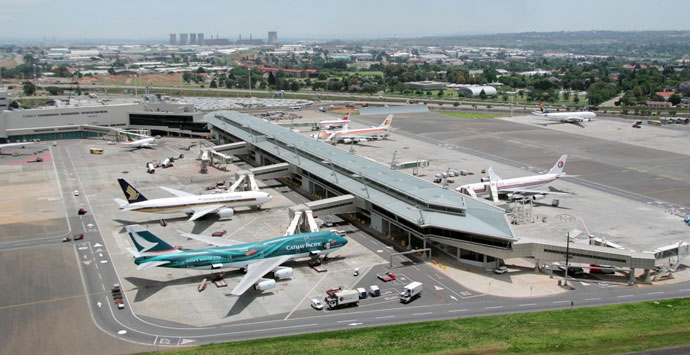Acsa has confirmed that it has secured enough jet fuel supply for OR Tambo International Airport (JNB) for January following the fire at the National Petroleum Refiners of South Africa (NATREF) refinery earlier this month, which has impacted fuel production nationally, as reported by Travel News.
The industry is now collaborating to mitigate any disruption during February.
JNB has 27,1 million litres of jet fuel currently available. The airport presently uses about 3,6 million litres of jet fuel daily, meaning there are about 7,6 days of stock on hand until the week ending February 2.
Given the requirement for consumption of 3,6 million litres per day, with the opening of the refinery on February 27, this translates to a total of 97,2 million litres required for February, Acsa said in a press release.
The Fuels Industry Association of Southern Africa (FIASA), NATREF industry partners and government agencies, including Acsa, are working with various fuel industry stakeholders to find jet fuel for February.
Other stakeholders working on a solution to the shortage include the Central Energy Fund, Strategic Fuel Fund, Department of Mineral and Petroleum Resources, Transnet through Transnet Pipelines and Transnet Freight Rail, SARS and other state-owned energy companies.
“The distribution of fuel remains at the discretion of airlines and fuel suppliers subject to their respective commercial contracts. Airlines and suppliers are exploring alternative measures, such as tankering (refuelling at other airports), to manage fuel needs,” Acsa said.
“Some airlines have raised concerns that their suppliers are restricting them and are not able to secure enough fuel to get them to their next destinations and have started making alternative plans to make fuel stops at other airports.
“Airlines are entitled to take measures they consider prudent in these circumstances, including tankering from other airports, in order to save the current fuel reserves until certainty about the month of February prevails.”
Lufthansa has already notified that its flights and those of SWISS departing from JNB may need to make a technical refuelling stop en route to Frankfurt and Zurich, respectively.
“In the event that a technical refuelling stop is necessary, this will result in the scheduled arrival of such flight being delayed by an estimated 1 hour and 30 minutes.
“The current period for which our flights may need to perform such technical refuelling stops is between January 18 and 22. However, further information and updates on the development of the fuel situation will be provided as soon as we receive information from the relevant authorities,” Lufthansa said in a notice.
Solutions
Acsa has worked on the following solutions for February:
- Engaging all stakeholders to deal with the shortage caused by the NATREF fire and building fuel reserves.
- Requested Transnet to prioritise the movement of fuel stock from Durban to Gauteng once imported volumes arrive.
- The fuel industry to build up more stocks at King Shaka International Airport, which has higher fuel capacity than its daily consumption.
Acsa has advised passengers to allocate adequate time between arrival and departure for connecting flights.
“Every airline sets minimum connection times at each airport. Domestic flights usually take an hour to connect to another flight. International flights take longer due to immigration and customs requirements. Larger airports will require a longer time than small airports.”

